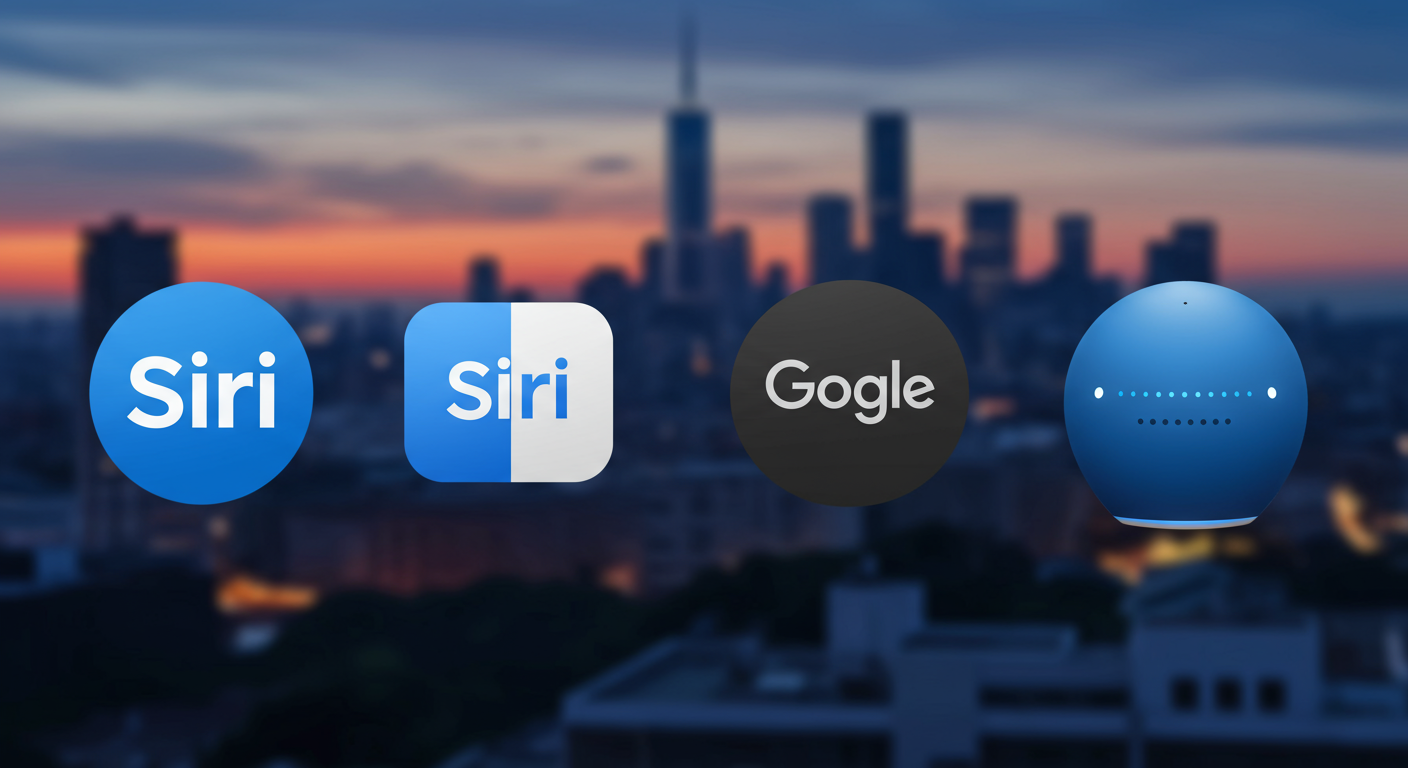Now Reading: The Rise of AI-Powered Mobile Assistants: A Comparative Analysis of Siri, Google Assistant, and Others
- 01
The Rise of AI-Powered Mobile Assistants: A Comparative Analysis of Siri, Google Assistant, and Others
The Rise of AI-Powered Mobile Assistants: A Comparative Analysis of Siri, Google Assistant, and Others

Introduction: The AI Revolution in Your Pocket
The world is increasingly driven by Artificial Intelligence (AI), and one of the most accessible manifestations of this technology is in the form of mobile assistants. From setting alarms to answering complex questions, AI-powered assistants have seamlessly integrated into our daily lives. This blog post delves into the rise of these virtual companions, focusing on the most prominent players: Siri, Google Assistant, and a few notable others. We’ll explore their strengths, weaknesses, and how they stack up against each other in this rapidly evolving landscape.
The evolution from basic voice commands to sophisticated contextual understanding has been remarkable. Early iterations were often limited and frustrating. However, advancements in Natural Language Processing (NLP), Machine Learning (ML), and cloud computing have transformed these assistants into genuinely helpful tools. They are now capable of understanding nuances in human language, learning user preferences, and proactively offering assistance.
This comparative analysis aims to provide a comprehensive overview for users seeking to understand the capabilities of each assistant. Whether you’re choosing a new smartphone or simply curious about the future of AI, this guide will offer valuable insights.
Siri: Apple’s Pioneering Voice Assistant
Siri, Apple’s voice assistant, was one of the first to gain mainstream popularity. Introduced in 2011, it quickly became a symbol of futuristic technology. Siri is deeply integrated into the Apple ecosystem, offering seamless control over iOS devices and HomeKit-enabled smart home devices.
Strengths:
- Ecosystem Integration: Siri shines when controlling Apple devices and services. Setting reminders, sending messages, making calls, and playing music are all handled smoothly.
- Privacy Focus: Apple emphasizes user privacy, and Siri reflects this. Data is anonymized and not used for advertising purposes.
- HomeKit Control: Siri is a powerful tool for managing HomeKit smart home devices, allowing users to control lights, thermostats, and more with voice commands.
Weaknesses:
- Limited Third-Party Integration: Compared to Google Assistant, Siri has fewer integrations with third-party apps and services.
- Contextual Understanding: While improving, Siri sometimes struggles with complex or nuanced requests.
- Proactive Assistance: Siri is less proactive in offering suggestions or anticipating user needs compared to Google Assistant.
Siri is ideal for users deeply embedded in the Apple ecosystem who prioritize privacy and seamless device control. However, those seeking broader third-party integration and more proactive assistance may find Google Assistant more appealing.
Google Assistant: The Power of Search and AI
Google Assistant, powered by Google’s vast search engine and AI capabilities, has become a formidable competitor to Siri. Available on a wide range of devices, including smartphones, smart speakers, and smart displays, Google Assistant offers a comprehensive and versatile experience.
Strengths:
- Search Prowess: Google Assistant leverages Google’s unparalleled search engine to provide accurate and comprehensive answers to a vast array of questions.
- Third-Party Integration: Google Assistant boasts extensive integration with third-party apps and services, allowing users to control everything from ride-sharing apps to food delivery services.
- Proactive Assistance: Google Assistant excels at anticipating user needs and offering proactive suggestions based on location, calendar events, and past behavior.
- Contextual Understanding: Google Assistant demonstrates impressive contextual understanding, allowing for more natural and intuitive conversations.
Weaknesses:
- Privacy Concerns: Google’s data collection practices raise privacy concerns for some users. While data is used to improve the assistant’s performance, it’s important to be aware of the potential trade-offs.
- Device Dependence: While available on many devices, the experience can vary depending on the hardware and software.
- Occasional Errors: Despite its advanced capabilities, Google Assistant can still occasionally misinterpret commands or provide inaccurate information.
Google Assistant is a powerful and versatile assistant that excels at answering questions, integrating with third-party services, and providing proactive assistance. However, users should be mindful of Google’s data collection practices and the potential privacy implications.
No products found.
Beyond Siri and Google Assistant: Other Notable Players
While Siri and Google Assistant dominate the market, several other AI-powered mobile assistants offer unique features and cater to specific needs.
- Amazon Alexa: Primarily known for its integration with Amazon Echo smart speakers, Alexa is also available on mobile devices. It excels at controlling smart home devices and providing access to Amazon’s vast ecosystem of services.
- Microsoft Cortana: While less prominent than Siri and Google Assistant, Cortana is integrated into Windows devices and offers features like task management and proactive reminders.
- Samsung Bixby: Exclusively available on Samsung devices, Bixby offers deep integration with Samsung’s hardware and software. It allows users to control device settings and perform complex tasks with voice commands.
Each of these assistants offers its own unique strengths and weaknesses. Choosing the right one depends on individual needs and preferences. Alexa is a strong choice for smart home enthusiasts, Cortana is well-suited for Windows users, and Bixby offers deep integration with Samsung devices.
The Future of AI Mobile Assistants
The future of AI-powered mobile assistants is bright. Advancements in NLP, ML, and edge computing are paving the way for even more sophisticated and personalized experiences.
Key Trends:
- Improved Natural Language Understanding: Assistants will become even better at understanding nuanced language and complex requests.
- Personalized Experiences: Assistants will learn user preferences and proactively offer tailored suggestions and assistance.
- Edge Computing: Processing more data locally on devices will improve response times and enhance privacy.
- Integration with Augmented Reality (AR) and Virtual Reality (VR): Assistants will play a key role in AR and VR experiences, providing hands-free control and information access.
- AI-Driven Healthcare: Mobile assistants are poised to offer assistance with health monitoring, medication reminders, and virtual consultations.
As AI technology continues to evolve, mobile assistants will become even more indispensable tools for managing our lives, connecting with information, and interacting with the world around us. The competition between Siri, Google Assistant, and other players will drive innovation and ultimately benefit users with more powerful and versatile virtual companions.
No products found.













